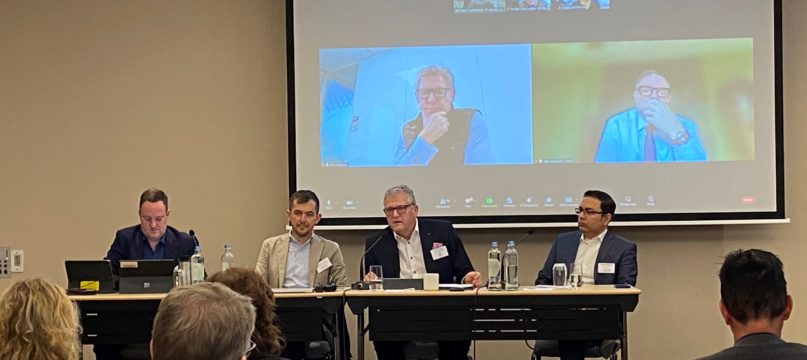
Brussels, 19 January 2024 – A group of 10 representatives of independent automotive service providers have called on President von der Leyen and the College of Commissioners to urgently deliver sector-specific legislation on access to vehicle data. Together they represent 80% of the European automotive economy and include the continent’s automotive parts suppliers and distributors, workshops and their technology suppliers, mobility services companies, the insurance industry and consumers.
The majority of modern vehicles are connected and offer immense potential for safer, smarter and more affordable mobility for European consumers and businesses.
However, manufacturers’ quasi-monopoly control of vehicle data is impeding the development of services that independent service providers could offer. This limits service innovation and competition, restricting consumer and business choice, driving up prices and erodes Europe’s competitive position globally.
The group stresses the European Commission’s long-promised plan for a sector-specific legislation on access to in-vehicle data, functions, and resources is more necessary than ever. The Data Act neither addresses the quasi-monopolistic market structure nor the technical requirements in the automotive industry to make equitable data access a reality.
Action is urgent due to the regulatory cliff-edge in July when new cybersecurity laws kick in, potentially leading to the progressive shutdown of the only independent means of remote access to vehicle data (via the on-board diagnostic port).
The EU must urgently put in place equal access to vehicle-generated data for all market actors by delivering sector-specific legislation that protects consumer choice and encourages real competition and investment in digital transformation and data-driven businesses. Each day of delay stifles European innovation, job creation and the safer, smarter, more sustainable and affordable mobility that Europe’s citizens and businesses deserve.
***
“FIA members continuously seek to develop consumer services in mobility and beyond. But our efforts are hampered through the low quality, scarce and costly data made available by vehicle manufacturers. Fair access to vehicle data is essential in unlocking the full potential of innovative services, beneficial for consumers and all players in the aftermarket. A level playing field is needed to favour innovation for all players and not only a few.”
– Karsten Schulze, Technical President of ADAC
“Ensuring full and real-time data access is essential for fleet companies to be able to offer smart, sustainable, and affordable mobility to their clients. There is no further time to lose as the automotive industry is moving at very high pace and the independent service providers risk losing their competitive position. Thus, we ask President von der Leyen to urgently deliver the legislative proposal on access to in-vehicle data.”
– Tim Albertsen, CEO of Ayvens Mobility Solutions
‘There is currently no level playing field in accessing vehicle data which is stifling competition and innovation. The European Commission must stop dragging its feet and urgently put forward EU regulation. This will enable insurers to provide better products and services to support the climate transition and improve road safety. It will also help them understand and manage the risks related to new and future forms of mobility, such as autonomous driving. Opening data access will prevent a few big companies controlling data and instead create a competitive market that delivers for Europeans.’
-Yann Arnaud, Director of Responses to Customer Needs & Innovation at MACIF, the French insurer, speaking on behalf of the European insurance sector.
“Leveraging anonymized vehicle intelligence and linked tyre data provides a tremendous opportunity for building creative solutions that will shape the future of mobility.”
– Raghunath Banerjee, Vice President of Data Solutions at Bridgestone
“Investments in services based on in-vehicle generated data require a stable and predictable access environment. A sector-specific regulation is needed to create such an environment.”
– Benjamin Krieger, Secretary General of CLEPA